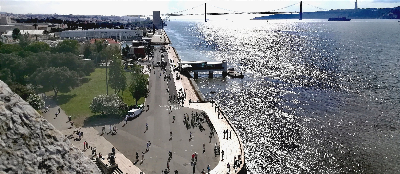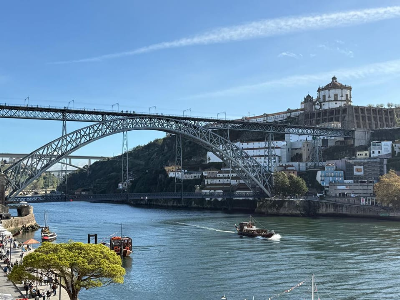
©
У березні 2025 року Португалія зіткнулася з гострою політичною кризою, викликаною звинуваченнями у конфлікті інтересів щодо прем'єр-міністра Луїша Монтенегру. За повідомленнями ЗМІ, він надавав юридичні послуги компанії зі свого рідного міста, допомагаючи їй отримати продовження ліцензій на казино та готелі шляхом переговорів із державними органами. Водночас компанія нібито платила фірмі, пов'язаній із сім’єю Монтенегру. Сам прем'єр-міністр відкидає звинувачення, стверджуючи, що ці події відбувалися ще до його перебування на державних посадах і жодного конфлікту інтересів немає. Опозиція скористалася ситуацією, ініціювавши два вотуми недовіри уряду. 11 березня парламент мав провести дебати та голосування щодо вотуму довіри, що визначить рівень підтримки чинної влади. Президент Португалії Марселу Ребелу де Соуза заявив, що у разі відставки уряду дострокові парламентські вибори можуть відбутися між 11 та 18 травня. Суспільство розділилося в оцінках політичної ситуації. Частина громадян вважає, що вибори не розв’яжуть проблему, тоді як інші закликають до прозорості та оновлення політичного керівництва. Варто зазначити, що у листопаді 2024 року парламент уже ухвалив урядовий бюджет на 2025 рік, що на той момент допомогло уникнути політичної кризи. Документ передбачав економічне зростання на рівні 2,1% ВВП, профіцит бюджету в 0,3% та низку соціальних ініціатив, зокрема податкові пільги для молоді та підвищення зарплат держслужбовців. Попри це, у березні 2025 року політична ситуація знову загострилася. У Лісабоні тривають дискусії щодо майбутнього уряду, а громадські настрої залишаються напруженими. Португалія стоїть перед вибором: зберегти чинний уряд чи йти шляхом дострокових виборів, які можуть докорінно змінити політичний ландшафт країни.
Political Crisis in Portugal: Allegations, No-Confidence Vote, and Potential Snap Elections
In March 2025, Portugal found itself embroiled in a deepening political crisis following allegations of a conflict of interest involving Prime Minister Luís Montenegro. According to media reports, Montenegro had previously provided legal services to a company from his hometown, allegedly facilitating the extension of casino and hotel licences through negotiations with government authorities. At the same time, the company was said to have made payments to a firm linked to Montenegro's family. The prime minister has denied any wrongdoing, insisting that these events took place before he assumed public office and that no conflict of interest exists. The opposition has seized the moment, filing two motions of no confidence against the government. Parliament is set to debate and vote on the issue on 11 March, a decision that will be crucial in determining the administration’s future. President Marcelo Rebelo de Sousa has stated that, should the government fall, snap elections could take place between 11 and 18 May. Public opinion remains divided. While some believe that fresh elections may not resolve the crisis, others are calling for greater transparency and political renewal. It is worth noting that in November 2024, the parliament had already approved the government’s budget for 2025, which helped avert a previous political deadlock. The budget projected economic growth of 2.1% of GDP, a budget surplus of 0.3%, and a series of social measures, including tax incentives for young people and salary increases for public sector workers. Despite this, political tensions have flared once again in March 2025. Discussions over the future of the government continue in Lisbon, while public sentiment remains tense. Portugal now faces a pivotal choice: maintaining the current administration or heading towards early elections that could significantly reshape the country's political landscape.

©
1282